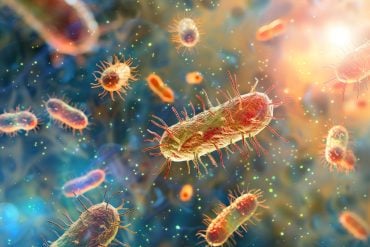Scientists at the Montreal Neurological Institute and Hospital, McGill University and McGill University Health Centre have shown that a member of the protein family known as SUMO (small ubiquitin-like modifier) is a key to why tumour cells multiply uncontrollably, especially in the case of glioblastoma. The SUMO family proteins modify other proteins and the SUMOylation of proteins are critical for many cellular processes. Identifying SUMO’s role in the cancer cell growth will lead to a new strategy for glioblastoma treatment.
Glioblastoma is the most common and lethal brain cancer. Current standard treatments include surgical resection, adjuvant chemotherapy and radiotherapy. Despite the treatments, patients’ survive about a year and half. The cancer continues growing in part due to the presence of the cancer stem cells. It is critical to understand cancer growing pathways in the stem cells for development of stem cells targeted therapies.

The molecular mechanisms that control cancer growth through cell cycle progression, involve a whole host of proteins and many aspects of this complex process are still unknown. One group of proteins termed cyclin-dependent kinases (CDKs) drive the cell cycle; yet, it is unclear why the cancer cells maintain a large amount of CDK proteins.
“In investigation of the cell cycle of human glioblastoma, we uncovered that CDK6 is modified by SUMO1. CDK6 sumoylation inhibits its degradation and thus stabilizes CDK6 protein in the cancer,” says Dr. Anita Bellail, a researcher at the Montreal Neurological Institute and Hospital, McGill University and McGill University Health Centre, and lead author on the paper published in Nature Communications. Co-authors on the paper include Jeffrey J. Olson of the Department of Neurosurgery at Emory University and Chunhai “Charlie” Hao, Department of Pathology, Montreal Neurological Institute and Hospital at McGill University and McGill University Health Centre.
“We found that CDK6 sumoylation is required for the renewal and growth of the cancer stem cells in glioblastoma. Inhibition of SUMO1 eliminates the stem cells and suppresses the cancer progression,” says Dr. Bellail.
Their finding adds concrete evidence to recent studies examining sumoylation pathways in human cancer development and progression. With the new understanding of how SUMO affects the cell cycle in cancer stem cells, this group of scientists are currently screening for SUMO1 targeted new drugs for the treatment of human glioblastoma.
Source Anita Kar – McGill University
Contact: McGill University press release
Image Source: The image is adapted from the McGill University press release
Original Research Abstract for “SUMO1 modification stabilizes CDK6 protein and drives the cell cycle and glioblastoma progression” by Anita C. Bellail, Jeffrey J. Olson and Chunhai Hao in Nature Communications. Published online June 23 2014 doi:10.1038/ncomms5234






